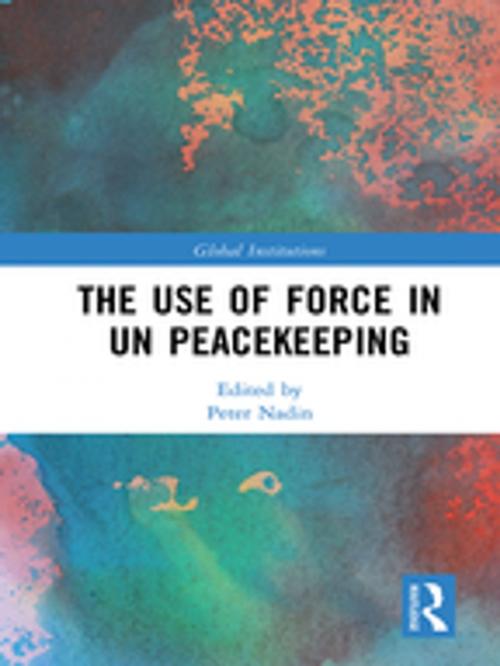| Author: | ISBN: | 9781351332460 | |
| Publisher: | Taylor and Francis | Publication: | February 6, 2018 |
| Imprint: | Routledge | Language: | English |
| Author: | |
| ISBN: | 9781351332460 |
| Publisher: | Taylor and Francis |
| Publication: | February 6, 2018 |
| Imprint: | Routledge |
| Language: | English |
This edited volume provides a detailed and nuanced analysis of UN peacekeeping and the use of force, to inform a better understanding of the complex and interconnected issues at stake for the UN community. Peacekeeping is traditionally viewed as a largely passive military activity, governed by the principles of impartiality, consent, and the minimum use of force. Today, most large UN Peacekeeping Operations are only authorized to use force in defence of their mandates and to protect civilians under imminent threat of physical violence.
Recently, with the deployment of the Force Intervention Brigade in the DRC, the UN has gone beyond peacekeeping and into the realm of peace-enforcement. These developments have brought to the fore questions regarding the use of force in the context of peacekeeping. The key questions addressed in this book examine not only the utility of force, but also the dilemmas and constraints inherent to the purposive use of force at a strategic, operational and tactical level.
- Should UN peacekeepers exercise military initiative?
- Is UN peacekeeping capable of undertaking offensive military operations?
- If so, then under what circumstances should peacekeepers use force?
- How should force be wielded? And against whom?
With chapters written by experts in the field, this comprehensive volume will be of great use and interest to postgraduate students, academics and experts in international security, the UN, peacekeeping and diplomacy.
This edited volume provides a detailed and nuanced analysis of UN peacekeeping and the use of force, to inform a better understanding of the complex and interconnected issues at stake for the UN community. Peacekeeping is traditionally viewed as a largely passive military activity, governed by the principles of impartiality, consent, and the minimum use of force. Today, most large UN Peacekeeping Operations are only authorized to use force in defence of their mandates and to protect civilians under imminent threat of physical violence.
Recently, with the deployment of the Force Intervention Brigade in the DRC, the UN has gone beyond peacekeeping and into the realm of peace-enforcement. These developments have brought to the fore questions regarding the use of force in the context of peacekeeping. The key questions addressed in this book examine not only the utility of force, but also the dilemmas and constraints inherent to the purposive use of force at a strategic, operational and tactical level.
- Should UN peacekeepers exercise military initiative?
- Is UN peacekeeping capable of undertaking offensive military operations?
- If so, then under what circumstances should peacekeepers use force?
- How should force be wielded? And against whom?
With chapters written by experts in the field, this comprehensive volume will be of great use and interest to postgraduate students, academics and experts in international security, the UN, peacekeeping and diplomacy.















